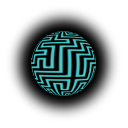ecology of cyberspace
We'll pretend you're governing us, you pretend to believe it.
I've been thinking a lot lately about people and their relationships to technology. Indeed, those relationships inform various aspects of my career, hobbies, and side projects. I'm always trying to use software that's open-source, free-as-in-freedom, and ethical in its design and implementation.
Yet, sometimes I feel that my relationship to technology is schizophrenic. On the one hand, I engage in FOSS software development and try to contribute to, use, and increase visibility of those projects which resonate with my ideals. On the other hand, in my dayjob I develop software that is proprietary, and software, languages, and frameworks that I use in and out of work come from companies like Microsoft (C#/.NET, Typescript, Github), Facebook (React), and Google (Golang, Android, Blink aka Chromium as used in Qutebrowser).
It's kind of like being an undercover agent I suppose.
The average person is uneducated in the technical landscape, and believes they have no choice in the tools that they use to perform work, entertain themselves (how sad, really...), and communicate with others. I've had the privilege, though, of being exposed to Free and Open Source Software from a young age, and being immersed in this culture and the various subcultures that stem from it. I've compiled and patched DWM, installed and used Plan9 on bare metal, and built a FreeBSD system entirely from the Ports tree. To be frank, I know the difference between good software and bad -- the difference between a purposeful tool made with love and a product made for money and control.
Good software does its thing, and gets out of your way.
Good software doesn't gamify your usage. Good software doesn't spy on you. Good software doesn't waste energy, time, or money.
Bad software does all of the above -- and probably at the same time. Chances are, you're using bad software right now. Could be your web browser, your desktop OS, your phone OS, your productivity stack, your multimedia apps -- anything. Learn to recognize the smell of bad software, and stop using it. This isn't always possible; sometimes vendor lock-in at work or school leaves us with no choice -- in these cases, I defer to the above quote from Desert. But if you do a bit of research, there's almost always a choice to be made.
I'm not going to rant about what software you should use; in cost of computing I make some pointed suggestions about web services, and you can read my list of desktop software if you're interested (don't get me started on the mobile ecosystem -- that's for another post). But the point is that our tool usage doesn't happen in a vacuum. We're part of a digital ecosystem. And it's up to us as individuals to decide whether to allow ourselves to be prey -- used, predated, and controlled -- or to use these technologies to their fullest extent and become truly empowered. The choice should be obvious.
